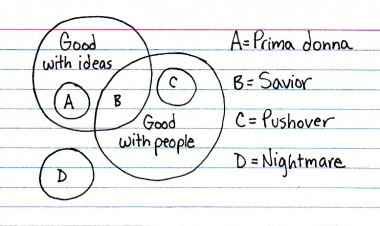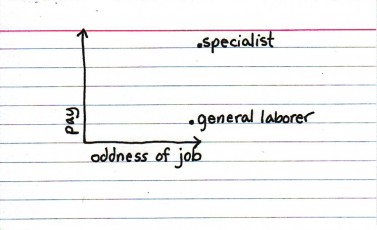Fit and Finish
Considering how expensive it is to bring on new people into your organization, it really pays dividends to make sure that any new hire is both a good fit for the technical requirements of the job as well as a good fit for the overall culture of the team and organization overall. In part 1 of this series, we talked about the groundwork needed to effectively bring in a new hire. Like database and application design, a little extra preparation in the beginning can save you a lot of heartache later in the process. In part 2 of the series, we talked about various styles of conducting interviews to maximize the value of time spent with job seekers and, hopefully, enabling you to make the best possible choice among the candidates available. In our final article in the series, we’re going to talk about those elements that are hardest to define, such as gauging how well a candidate will fit in with the team.
In my own experience, there are three attributes that have to be compatible among my teammates in order to succeed – autonomy, attitude, and aptitude. The attributes that are needed by your teammates might certain vary from my own. For example, an authoritarian team leader might like to have very loyal team members who constantly look to them for direction, while a very relaxed team leader might like to have independent team members who get things done without much involvement from the team lead.
To explain my own preferences, autonomy describes the individuals need for supervision. I prefer to work with a team that is able, once given overall direction, to drive towards meeting their goals and meeting their responsibilities without much intervention. Attitude, in my case, is a positive outlook and an upbeat approach to life and challenging situations. I simply get along better with people who aren’t always looking at the gloomy side of life. Aptitude, in this situation, describes the individual’s capacity to learn new things and adapt to new situations. Since technology is ever-changing, I like to work with people who are life-learners and are able to readily take on new technologies and challenges.
As you can tell from this description, however, that I’m describing some highly subjective attributes. Your list of attributes for a successful team member might be very different, even diametrically opposite of my attributes. In addition, I’d like to speak for a moment to the idea of diversity. I’m a strong believer in diversity and, all things being equal, encourage you to consider those individuals who are unlike you as potential team mates. There’s enormous research in the field of sociology describing how groups of people consistently make better decisions than lone decision makers. The gap between good and mediocre decision making groups often hinges on two factors. First, whether all the members of the group have all the same information and, second, whether they have similar perspectives and priorities. Those groups that have uniform information and have a great variety of perspectives are consistently better at decision making than less informed or less diverse groups.
In summary, it’s important for you to define the key attributes that make your team cohesive and effective as a social unit, not just a work unit. Once you’ve determined these attributes, look for opportunities to hire candidates who exhibit those attributes. But don’t forget to balance the risk of uniformity against the benefits of diversity. A team that is diverse, while upholding the same social attributes, will be effective, resistant to turnover, and – most importantly – fun.



Speak Your Mind